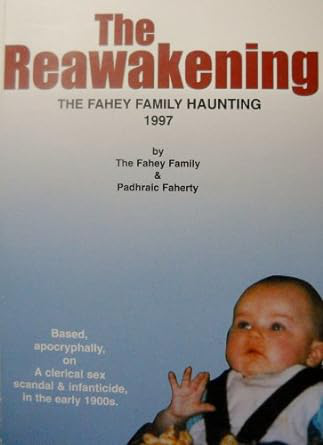Unknown Illness Affecting Growing Number of Young Adults in Canadian Province
Bizarre/Strange
Monday 3rd, January 2022
5 minute read.
In the Canadian province of New Brunswick an unknown condition has been baffling experts since 2015 with the unknown condition looking as though it's continuing to spread. A supposed whistleblower has stated that it's a progressive neurological illness.
An employee of Vitalité Health Network spoke to the Guardian and said that suspected cases are growing in number and that young adults with no prior health issues are starting to develop a string of symptoms, including rapid weight loss, insomnia, hallucinations, difficulty thinking and limited mobility.
At the time of writing this, officially 48 cases were under investigation which is the same number of cases that had previously been announced as under investigation. But other unconfirmed sources have said that the cluster of cases could be as many as 150 people with further cases still pending further assessment.
The unnamed source said, "I'm truly concerned about these cases because they seem to evolve so fast,", followed by "I'm worried for them and we owe them some kind of explanation."
To date at least 9 cases have been recorded as two people in close contact, there are no genetic links but have developed symptoms which may suggest environmental factors are at play.
So far one suspected case involved a man who was developing symptoms of dementia and ataxia (a lack of muscle control or coordination of voluntary movements). His wife, who was his caregiver, suddenly began losing sleep and experiencing muscle wasting, dementia and hallucinations, her condition has since progressed further than her husbands.
Another woman in her 30s was described as non-verbal, feeding with a tube and drools excessively. Her caregiver who is a nursing student in her 20s also recently started showing symptoms of neurological decline.
In a third case a young mother quickly lost close to 60 pounds in weight, developed insomnia and began hallucinating. Brain imaging of the woman showed advanced signs of atrophy (a decrease in size of some part or all of her brain).
"This is not a New Brunswick disease," the employee said, "We're probably the area that is raising the flag because we're mostly rural and in an area where people might have more exposure to environmental factors."
It is expected that the province of New Brunswick will announce that the cluster of initially diagnosed cases was a case of misdiagnoses which have been mistakenly grouped unrelated illnesses.
In October officials suggested that the eight fatal cases were the result of misdiagnosis and argued that instead of suffering from a shared neurological illness, the victims had died of known and unrelated pathologies.
A scientist at Canada's public health agency who specialises in neurodegenerative conditions said, "The fact that we have a younger spectrum of patients here argues very strongly against what appears to be the preferred position of the government of New Brunswick - that the cases in this cluster are being mistakenly lumped together"
In October the province also said an epidemiological report suggested there was no significant evidence of any known food, behaviour or environmental exposure that could explain the illness.
Laurie Betty's whos father, Tim Beatty passed away in 2019 after the onset of mental confusion with rapid deterioration, and Laurie's sister have pleaded to have their father's remains tested for neurotoxins, including β-Methylamino-L-alanine (BMAA), which some have suggested could be the culprit behind the illness.
In one study linked below in the references, high concentrations of BMAA were found in lobster, an industry that drives the economies of many of New Brunswick's coastal communities. The apparent resistance to test for BMAA has led to speculation that there is political pressure in play.
"If a group of people wanted to breed conspiracy theorists, then our government has done a wonderful job at promoting it," said Beatty. "Are they just trying to create a narrative for the public that they hope we'll absorb and walk away from? I just don't understand it."
Documents supposedly received through a freedom of information request and seen by the Guardian suggest that scientists at the country's public health agency were considering BMAA as a possible cause but needed the province to order testing to confirm.
"I don't know why the province wouldn't just simply do the science and look. They have my dad's remains. We've given them full permission to do toxicology and do what needs to be done," said Beatty.
A federal scientist who was familiar with both the cluster and the testing process said, "What people are talking about really amounts to a full research investigation, because then we know what we're looking for precisely".
"Right now we don't have a way to interpret simple data that you might get when testing a person's brain tissue for a particular toxin. For example, how much are ‘elevated' levels of a neurotoxin compared to the rest of the public? And when does that become a cause for concern?"
"We keep telling the patients that the country is behind them, and that the tests will be done so that we can figure this out. We tell them we will get to the bottom of this so that we can help them," said the Vitalité employee.
"And so far, that hasn't happened."
An employee of Vitalité Health Network spoke to the Guardian and said that suspected cases are growing in number and that young adults with no prior health issues are starting to develop a string of symptoms, including rapid weight loss, insomnia, hallucinations, difficulty thinking and limited mobility.
At the time of writing this, officially 48 cases were under investigation which is the same number of cases that had previously been announced as under investigation. But other unconfirmed sources have said that the cluster of cases could be as many as 150 people with further cases still pending further assessment.
The unnamed source said, "I'm truly concerned about these cases because they seem to evolve so fast,", followed by "I'm worried for them and we owe them some kind of explanation."
To date at least 9 cases have been recorded as two people in close contact, there are no genetic links but have developed symptoms which may suggest environmental factors are at play.
So far one suspected case involved a man who was developing symptoms of dementia and ataxia (a lack of muscle control or coordination of voluntary movements). His wife, who was his caregiver, suddenly began losing sleep and experiencing muscle wasting, dementia and hallucinations, her condition has since progressed further than her husbands.
Another woman in her 30s was described as non-verbal, feeding with a tube and drools excessively. Her caregiver who is a nursing student in her 20s also recently started showing symptoms of neurological decline.
In a third case a young mother quickly lost close to 60 pounds in weight, developed insomnia and began hallucinating. Brain imaging of the woman showed advanced signs of atrophy (a decrease in size of some part or all of her brain).
"This is not a New Brunswick disease," the employee said, "We're probably the area that is raising the flag because we're mostly rural and in an area where people might have more exposure to environmental factors."
It is expected that the province of New Brunswick will announce that the cluster of initially diagnosed cases was a case of misdiagnoses which have been mistakenly grouped unrelated illnesses.
In October officials suggested that the eight fatal cases were the result of misdiagnosis and argued that instead of suffering from a shared neurological illness, the victims had died of known and unrelated pathologies.
A scientist at Canada's public health agency who specialises in neurodegenerative conditions said, "The fact that we have a younger spectrum of patients here argues very strongly against what appears to be the preferred position of the government of New Brunswick - that the cases in this cluster are being mistakenly lumped together"
In October the province also said an epidemiological report suggested there was no significant evidence of any known food, behaviour or environmental exposure that could explain the illness.
Laurie Betty's whos father, Tim Beatty passed away in 2019 after the onset of mental confusion with rapid deterioration, and Laurie's sister have pleaded to have their father's remains tested for neurotoxins, including β-Methylamino-L-alanine (BMAA), which some have suggested could be the culprit behind the illness.
In one study linked below in the references, high concentrations of BMAA were found in lobster, an industry that drives the economies of many of New Brunswick's coastal communities. The apparent resistance to test for BMAA has led to speculation that there is political pressure in play.
"If a group of people wanted to breed conspiracy theorists, then our government has done a wonderful job at promoting it," said Beatty. "Are they just trying to create a narrative for the public that they hope we'll absorb and walk away from? I just don't understand it."
Documents supposedly received through a freedom of information request and seen by the Guardian suggest that scientists at the country's public health agency were considering BMAA as a possible cause but needed the province to order testing to confirm.
"I don't know why the province wouldn't just simply do the science and look. They have my dad's remains. We've given them full permission to do toxicology and do what needs to be done," said Beatty.
A federal scientist who was familiar with both the cluster and the testing process said, "What people are talking about really amounts to a full research investigation, because then we know what we're looking for precisely".
"Right now we don't have a way to interpret simple data that you might get when testing a person's brain tissue for a particular toxin. For example, how much are ‘elevated' levels of a neurotoxin compared to the rest of the public? And when does that become a cause for concern?"
"We keep telling the patients that the country is behind them, and that the tests will be done so that we can figure this out. We tell them we will get to the bottom of this so that we can help them," said the Vitalité employee.
"And so far, that hasn't happened."



